The Great Dinosaur Heist
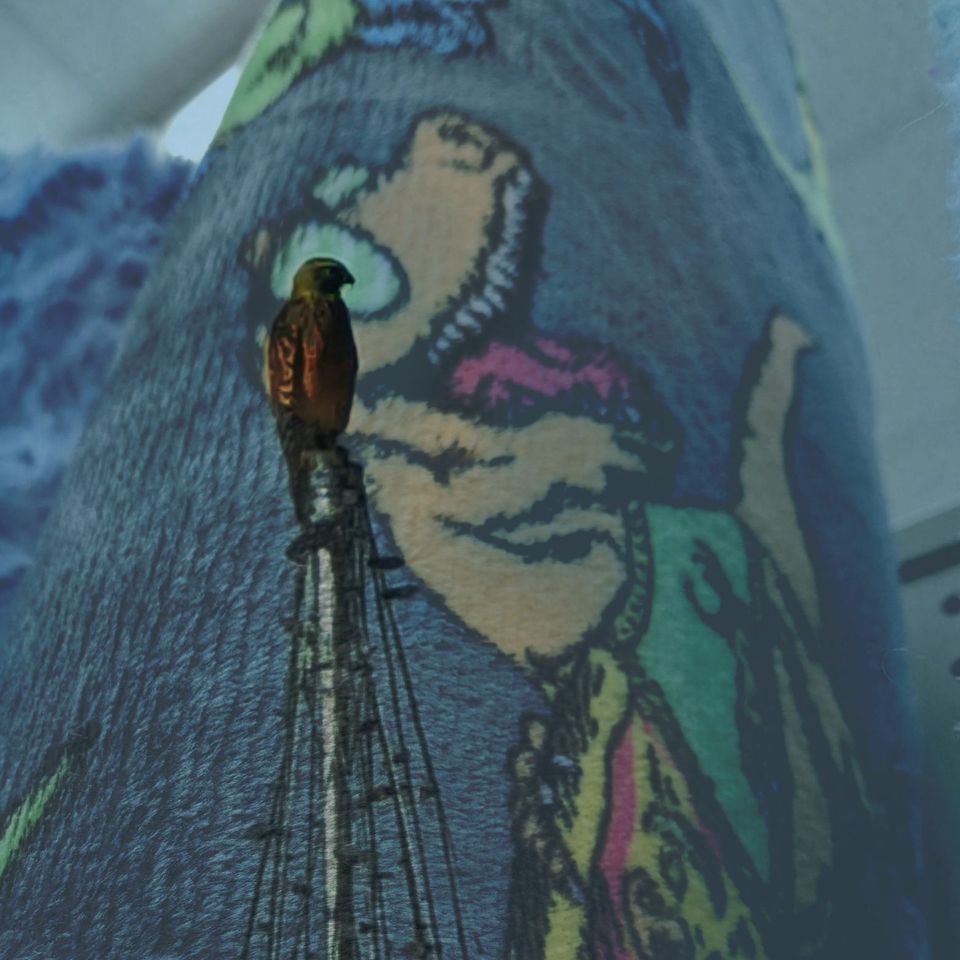
What comes to mind when you read the word "Velociraptor?" Do you see a fluffy, dog-sized chicken, covered in down, with resplendent tail feathers it uses to signal to its fellows? Or do you see a lithe and clever reptile, scaly and featherless, tall enough to look you in the eye?
Welcome to Heat Death, the newsletter that can only see you when you move. Sometimes a myth is so powerful that it crowds out any possibility for truth to replace it — establishing itself like invasive kudzu on a Southeastern forest, so dense that nothing else can take root, and growing back too aggressively for anything to take its place.
Such is the popular understanding of Velociraptor. Despite the fact that decades of scientific research have thoroughly established that birds are dinosaurs, and some of the most famous dinosaurs were recognizably bird-like, plenty of us have a hard time seeing them as anything other than how they were shown to us during a formative period in our lives, when we were first exposed to Jurassic Park.
And just as it colonized our understanding of Velociraptor, the impact of the Jurassic Park franchise sank deep roots into both the popular understanding of dinosaurs and, more broadly, the popular understanding of both paleontology and the pursuit of science as a whole — establishing pernicious myths that are proving difficult to uproot, dressing up the moral hazards of capitalism in a parable that pretends to be about the dangers of science.
At least, that's the argument of our guest today, paleontologist Jason Pardo, a researcher of early land vertebrates at the University of Calgary. After reading our latest issue of Decline and Fall — a new installment of which is coming this month — Pardo contacted Asher to ask if he’d be interested in talking about the underpinnings of Jurassic Park.
The conversation dances across topics like colonialism, extractive science, the fate of the Chilean sea bass, the IP-ification of dinosaurs, and more. This interview has been edited for flow, content and clarity.
It’s Heat Death. Stay with us.

From Predators to Property
Tell us about yourself, Dr. Pardo.
Jason Pardo: I do a combination of paleontology and evolutionary biology work. I primarily study early tetrapods—the "fin to limb transition," and what came after—both from a paleontological perspective of going out and digging up fossils and describing them, and also from what we can see in modern amphibians.
What was your first exposure to Jurassic Park?
I was probably nine when it first came out. I remember there being dinosaur things everywhere. At the time—and still very much—I was really into natural history, fossils. Having this general popularization of dinosaurs and dinosaur media was very exciting. I finally saw the movie several years later and very much enjoyed it. Saw The Lost World in theaters, Jurassic Park 3 in theaters. I think I saw the Jurassic World films on an airplane.
That sounds about right. So when did you start thinking about the cultural and political underpinnings of Jurassic Park as opposed to just a fun thriller with dinosaurs?
I started thinking about that in college, and it's been on the back of my mind as more of this media has come out. I think a lot of people associated with paleontology—or who go into it, or are paleontology fans—initially enjoy the movie, and then they start criticizing individual points. This dinosaur wouldn't have done this, or this fossil wouldn't have looked like that.
But very quickly, you can start picking up some of the bigger questions in the first two films and the first two novels. In the novels, Crichton puts forward a lot of ideas about how evolution works, how science works. It's a very short step to wondering why he's asking those questions, and whether the answers being given in the films and novels are the right answers.
What are some of those questions that Crichton asks?
In the novels, Crichton puts the failure of Jurassic Park on the instability of technology. Technology is inherently unstable, it's going to fall apart. It's fun and exciting and then it crashes down around us and leaves us in a horrible place. That's most of his novels. That's Jurassic Park, that's his film Westworld. He had one of his novels about how climate change is wrong. He's a very conservative author when you actually get down to it.
He basically has the character of Ian Malcom (Jeff Goldblum, sweaty, shirtless in the films. -ed) as his mouthpiece. He has this in his other novels, too: a scientist who criticizes how much we can't know, how much we shouldn't trust science. He very much respects this "street sense" instead of technical expertise. And that comes through in several different ways. He's very dismissive of geneticist Henry Wu in Jurassic Park, and he's really dismissive of paleontologist Richard Levine in The Lost World. He has this idea of the technical expert who's separated from the rest of the world, and the street-smart expert who knows the ways of the world.
So [the park in] Jurassic Park falls apart because of technical experts. But then he really gives you a series of events that have nothing to do with those technical experts at all: they're more to do with the whole process of capitalism itself. The weak point that sets off the whole storyline of Jurassic Park is that the park's owner, Hammond, has hired a computer scientist who's not being paid well enough and has too much work, and who says the hell with it, I'm going to sell you out. And that's a lot of the novel: how much this concept of capitalizing science is wrong and leads to problems.
Crichton invests in this idea of "chaos theory," which he interprets as this idea that ordered systems are inherently going to collapse. But when you talk about complex systems through the lens of systems theory or systems biology, complex systems can do a lot of different things. They can be self-correcting. An individual cell is a complex system. The human body's a complex system. So this idea that a complex system is going to trend toward destruction is difficult to reconcile with how we actually understand these systems.
One of the things you mentioned when we talked initially were the colonialist roots of a lot of Jurassic Park's storytelling. The inciting incident of the novels and films is this very rich guy, John Hammond, who sets up an island down in Central America, where he can basically do what he likes.
Central America is a place where—especially in the 80s and 90s—American billionaires were going to launder money and do unpleasant things. In the 1980s, that was the Iran-Contra scandal going through El Salvador, and the US was interfering in Nicaragua. And Costa Rica was just beginning to put together their current ecotourism model.
In a way, Jurassic Park is almost an attack on Costa Rica, even though in retrospect that ecotourism model has been very successful at really modernizing and bringing wealth to that country. Crichton basically argues that nature is inherently brutal, and if you mix tourism with nature and technology, or with science, it's ultimately going to get away with you. He seems to be criticizing that part of it, rather than the science of bringing things back.
The films really lean on that, though: the idea that it’s somehow inherently wrong to bring back dinosaurs. Which has filtered directly into discussions around De-extinction—cloning and reintroducing extinct animals like mammoths—today.
Exactly. When we have these discussions around bringing back Pleistocene megafauna like Mammoths, it's always "oh, we shouldn't bring back this extinct animal or that extinct animal. They had their time. We don't know what the consequences are if we bring this animal back."
But we've been engineering animals for 30,000 years or more without necessarily being aware of the consequences. I'm not sure the question of consequences is actually the right one. We could be asking: is this good for the animals? We could ask whether it's a good use of money. But I think the Jurassic Park question is maybe a trap.
And the Jurassic Park question is, to be clear, the philosophical question of whether we should bring back extinct things, not why or how you're doing it?
Exactly. And I'm not saying we should! But the idea that it's an abomination and against the planet—are we going to lose something by bringing back a frog that went extinct in the 20th century due to habitat destruction? The moa, which went extinct 500 years ago because of habitat destruction? At some point you have to ask—if these animals are in a zoo, we've been keeping animals in zoos for a very long time. Does bringing back a moa and keeping it in a zoo effect the ecosystem more than letting out cats?
This is something that's largely done away with in the movies, but there is a plot thread that Crichton teases of the idea that the dinosaurs are getting out, and are getting off the island, and are presumably even breeding on the mainland. Which isn't really engaging with ideas of non-native species, because that doesn't really seem to have been on his radar. It's this weird little plot thread that doesn't really go anywhere. But it's in there.
I think that actually ties back into the question of how Europe and the US view the rest of the world. In the novel, Crichton opens with this person who is injured in the park and dies in the mainland hospital, and local people are discussing whether this person was attacked by an Arawak-Taino spirit. And then you have an American doctor, who's of Latin American decent, who then finds half a dinosaur and doesn't know what he's looking at. He thinks it's a lizard, sends an X-ray back to whichever museum and they say it must be a joke.
The upshot is the idea that these people don't know what it is they're looking at: the way that Crichton views that relationship between North America and Latin America is very much this paternalistic idea that these people are silly and provincial and don't know anything.
In fact, if you think about where he perceives the expertise about how to deal with animals, they're all British agents of colonialism from Africa. Park warden Muldoon is a British colonialist who was in Kenya at the beginning of Kenyan independence, and that's where he developed his expertise in game sanctuaries. And then in Speilberg’s film of The Lost World — it's not in the book— the hunter Roland Tembo is the exact same.
That's really interesting. The thing that's going on with Muldoon and Tembo is that urge to do the Great White Hunter vs. Dinosaurs, which is of course its own very old colonialist pulp idea. Although it's sort of subverted in that Muldoon gets killed and Tembo is the person responsible for a T.rex rampaging through San Francisco.
The thing about it that's interesting is, are they humbled—or in Muldoon's case, killed—because their great white hunterdom is shown to be empty? Or is it a way of showing that the animals are greater than any human? It's not like either the movies or the novels portray the people of color who are adjacent to them as being more competent. In the film of The Lost World, you have one of the early people who dies is the incompetent guy listening to Latin music, who's not paying attention and leads to that one guy getting eaten by Compsagnathus. He's the one who freaks out when the Tyrannosaur shows up in camp and leads to that big chase and a bunch of people dying. And Tembo's colonial second, who's of South Asian descent — he dies while Tembo lives.
There’s also the fact that the whole franchise is built on extracted amber.
The film Jurassic Park actually shows that the amber is being dug in the Dominican Republic. Dominican amber is actually a lot younger than the Mesozoic— it's from the Miocene, which is 30 million years old as opposed to 65 million years plus. But it’s been banned from export since the 1970s. You have to get formal permission to remove it if it's got fossils in it, and if it doesn't have fossils in it, it needs to be worked by Dominican artists. It can't be exported raw. People don't always adhere to those laws. And if we take it at face value, that's very much what Hammond was doing: exporting Dominican amber to Costa Rica for research. Completely illegal.
We see something similar happening now, with regards to paleontological science, in the amber from Myanmar. There the amber is being dug in very contentious circumstances, possibly with coerced labor, in dangerous mines. And it's being used to fund both a repressive military crackdown, and potentially seperatist groups as well. Regardless, it's funding a major conflict, and scientists are paying for that. We're buying amber, because there are some amazing fossils in there. We're not using those fossils to clone dinosaurs, but we're certainly using them to make inferences about the world that the dinosaurs lived in.
Of course, paleontology has a colonial history and—as some modern researchers have convincingly argued—present, especially around who is assumed to have expertise. You can imagine a world in which—in the movie continuity—the park actually does get created, or saved as a sanctuary, and it's mostly American scientists who are getting to go study them. That sort of happens in The Lost World, even.
What's weird about that is that the films don't really have a concept of what sort of science you could do. In both the novel and film Jurassic Park, they joke that the paleontologists are out of a job. That the only goal for paleontology is to go out on expedition, find fossils, and bring them back.
But think about what kind of science you could do with one animal, or a small breeding population of that species. You could fund a ton of research on biomechanics, developmental biology, cell biology, physiology. Think of all the science that's been done just with mice. Why wouldn't you want to know how a multi-ton sauropod is able to survive? How some of these smaller dinosaurs functioned?
These are essentially questions that the franchise says are meaningless, or not interesting. The characters are deeply incurious about the animals they've created, and the films themselves also assume that we'd be deeply incurious about the animals that they've created.
Also, we still do paleontology on mammals. We still do paleontology on marine invertebrates. We want to know what happened in the world, how things actually happened in the past! We do that by digging up the fossils. It doesn't matter if the group is extinct or not. We want to know about the dynamics of evolutionary or ecological change. How species react to large-scale climate change. What happens to animals if an ecosystem starts fragmenting.
These are really important questions for how we approach climate change and the adaptability or resilience of natural ecosystems. It's not just finding a new dinosaur and giving it a new name.
But finding a new dinosaur and giving it a new name is, of course, the most easily graspable colonial part of paleontology. You go to a place, you find a new monster, and you get to name it for Science and put it in your museum.
That's kind of a consequence of how we—in this community of scientists and science enthusiasts—communicate. That new dinosaur might tell you something really interesting, or be part of a bigger story that's really important. The interest in dinosaurs means that dinosaurs are actually one of the best understood diversifications of large terrestrial animals. I'm often envious of the amount of work that's been put into that group and their relationships and evolution, because in my part of the tree of life, it's much, much worse.
But at the same time, most of the general public's interaction with dinosaurs happens when they were three to six years old, and dinosaurs were a monster that they had control over because they knew a name. At a time when you have very little control over the world, knowing the name of a monster like Tyrannosaurus gives you a sense of power. And I think that a lot of times people want to know: what is the dinosaur, what's its name, what's it's distinguishing characteristic.
What's on the trading card.
What's its signature attack, yeah. And leads to this discordance between the science that researchers are really excited about, and the science that a lot of journalists are really excited about, and the science that the general public is really excited about.
So the way we communicate it is that you find a dinosaur that has two sickle claws, or a dinosaur that has bat wings, as opposed to learning about how complex the emergence of flight was, and that there was a large diversity of animals experimenting with different modes of flight.
The science gets lost because people don't necessarily know to ask the interesting questions, and the science itself is very obscure. We talk about paleontology being a gateway science: people get into it because they're interested in dinosaurs and then learn to love science. But I'd argue that paleontology is probably one of the most obscure sciences. The research we actually do is very obscure, and it's hard to understand why we want to look at this animal or asking that question, unless you have a lot of foundational knowledge.
Jurassic Park’s release prompted a run of "dino-mania" in the popular culture, which seems to have somewhat ebbed outside of the online paleosphere. What do you think some of the actual impacts of that were on actual science and funding that got done, as opposed to the availability of toys?
I don't know. On the one hand, we're producing a lot of students. Most of the science is being done by students, not by tenured faculty— by people that have a 2-5 year appointment to do some science and then they have to find a job.
But we haven't created the jobs for those people. So a lot of the paleosphere you see online—a lot of the people who are actually practicing scientists—are in that 2-5 year contract of a grad program, or they're in that uncertain position of being a post doc, where they have a year or two contract at a time. But they aren't in permanent jobs, because there aren't many permanent jobs.
We created this great demand for paleontology training, and we created a lot of public interest in that, but we didn't really create jobs. As a consequence, I think that we ended up squandering a lot of that excitement and expertise that's been generated. To some extent, we actually see a proportionally smaller permanent field than there was 30 years ago.
Why is that?
It's cheaper to have students do it. At the same time as we've funneled a lot of people into all the sciences—'we need to have more STEM graduates'—there's been a devaluation of that academic work. As a result, what we really want is for those people to go into technology and unfortunately what that basically means is we want to push all those people into data science. So there's a significant pipeline now of people who want to do science going into a field, doing a PHD that generates really important data and specialized expertise, and then having to re-train into data science.
Even a lot of the permanent faculty now are underpaid, underprotected, expected to do additional work. And that's simply because a lot of the people making decisions about what work to fund simply don't value it. You can even almost see that in Jurassic Park, in the devaluation of a lot of the labor that's going into that work. The value is applied to the venture capitalists, not the scientists and technicians who are making things happen.
There's that scene where Grant is giving a presentation in Jurassic Park 3, asks for questions, and then has to say "any questions that don't have to do with Jurassic Park?" It's always struck me as maybe the smartest scene in the series, in how focused on where the energy in the culture is. 'Do you want to hear about my research, or do I have to just talk about Jurassic Park again?'
Well, there's another scene that feeds into that question of value from a slightly different angle. It’s one I've loved for a long time. There's a mention made in Jurassic Park of lunch, and what's being served at that lunch is Chilean Sea Bass.
Chilean sea bass is a deeper sea fish that is harvested at very, very old ages, because these are very slow growing animals. And up until the 1970s they were known as Patagonian tooth fish. Big ugly animal, not something you'd look at and think you want to eat. Then they rebranded it and sold it as a high-end food. They did the same thing for a fish called the orange roughy—which was originally called the slimehead—off of New Zealand.
These were unsustainable food sources, and we knew that back then. We knew that to get an orange roughy large enough to feed a single person took seventy years. A Patagonian toothfish large enough to sell as Chilean Sea Bass is over a hundred years old. In the 1990s, you were already seeing those populations crash.
So on the one hand, you have Hammond's repeated motto that they're sparing no expense, we're going to make this park about de-extinction, and also the most luxurious experience possible. But in doing so, the lunch that they serve is something leading to population crashes in these vulnerable fish. It's this very interesting conflict there: do we really care about de-extinction? Do we care more about the appearance of luxury and the fact that de-extinction gives us the opportunity to demonstrate technological mastery?
You made a point earlier about the fundamental incuriosity the Jurassic Park movies have for the science they're engaging with. In the later—and to my mind, much lesser—Jurassic World movies, the central conceit of the first film is that people would get bored of living dinosaurs. Which is a wild thing to say—unless the film's actual idea is that dinosaurs are old hat as intellectual property, which seems to be the actual approach. It has nothing to do with dinosaurs themselves at all.
On the one hand, I think that people have gotten fatigued with dinosaurs. But at the same time, I think people are fatigued with the dinosaur story that's being told through Jurassic Park. The problem is that it's very hard for independent IP developers to tell stories that are not the Jurassic Park story. We've seen them try—television shows like Terra Nova and Primeval, and this new NBC show La Brea. But I think people have a hard time looking beyond what you do when people are interacting with extinct organisms.
Also, the imprint of how Jurassic Park portrayed their dinosaurs was so large, I would even argue that Jurassic Park has even influenced the Kaiju genre. If you look at the Godzilla movie in 1998—which most people don't—that was completely Jurassic Park-derived. You have the big Godzilla as a Tyrannosaurus, and the baby ones, which are Velociraptor.
It also gestures at the idea that Godzilla is just an animal.
In a way I think it was more respectful of Godzilla being an animal than Jurassic Park even is. The story there is basically an animal that wants to breed and eat, and isn't mean or evil.
Right. The velociraptors in those first two Jurassic Park movies are like slashers.
Well, there's an effort to have each dinosaur be symbolic of something. So the Dilophosaurus is the surprise of not having control over what you create. The Tyrannosaurus is the majesty and danger of nature's power, and the Velociraptors are a dark mirror of human ingenuity.
What's the Spinosaurus in Jurassic Park 3?
A dinosaur version of FARC? The long-term impact of American colonialism on Latin America. They bring in these military contractors, and it's basically a hostage situation with the kid stranded on the island: someone got taken hostage by FARC in Colombia and now we have to go back, and at the end you call the State Department. That kind of makes sense of that film, which is otherwise a train-wreck. But it's not a...great implication.
Once you get to Jurassic World, though, there's no real symbolism or effort to have anything symbolic or cohesive. You have dinosaurs show up like Baryonyx or a Carnotaurus, and it's just a cool monster to sell toys.
Yeah. They're not really presented as being animals, and they're not really thematically important, and they don't move like animals and they aren't shot like they're important. They're just there. It's a dinosaur movie so you have to have them.
It's weird though, because on the other hand, the franchise really values them. They really try to suppress the usage of those dinosaur species in other media. There's been a ton of trademark copyright fights over "raptor," Velociraptor. Which of these things are trademarkable.
As a paleontologist, I find that really concerning. If I find a dinosaur and name it, can a corporation that had nothing to do with that patent the usage of the name, or trademark the usage of it in a certain media form? That seems wrong!
You know, Velociraptor is a Mongolian animal, which brings us back to this question about how we extract value from parts of the world which usually haven't had a say in it, and we don't give much back. How much money has been made by the Jurassic Park franchise on the back of Velociraptor, and how much of that has gone back to paleontology in Mongolia? Some has gone back through the Jurassic Institute, which was a nonprofit that was established by Speilberg and company to give back to science, but the money that comes out of that is small grants. In thirty years they've handled something like $300,000. It's not like they've given movie royalties on Jurassic Park to Mongolian museums or funded the training of a generation of Mongolian paleontologists.
These IP practices that are fundamentally extractive. And they do that by protecting IP rights against independent users. Disney put out Dinosaur in 1999 and they sat on IP rights for Carnotaurus for a long time after that, which is why that animal only appeared in Jurassic World a few years ago.
What's interesting is that the Jurassic World franchise that it is kind of the last dinosaur film franchise left. You used to get the occasional dinosaur movie, but by the late 2010s it's kind of Jurassic World or nothing.
I'd love to be a fly on the wall of one of these boardrooms where people are nixing stories. But at the same time, you've got to wonder if there's a good dinosaur story left to be told, or if really what you have is a dinosaur adjacent community of fans that really wants to see accurately portrayed 3-D dinosaurs, and will see them in any context, but Jurassic Park as a franchise has basically said they aren't going to do it.
As a result, there's a lot of people saying we want real dinosaurs in movies, but we're not seeing them. I think what they really want is Walking With Dinosaurs.
Honestly, guilty. Do you have a piece of dinosaur media that you particularly like that isn't Jurassic Park?
If you'd asked me that 10 or 15 years ago, I'd probably have an answer! The longer you spend time in the field, the more and more I try and seperate out my personal time from my research. I don't necessarily want to read a science fiction novel about...amphibians. But there's some really excellent work that I've read that's mostly short fiction on the de-extinction of humans like Neanderthals. There was a really good bit of short fiction called N-Words by Ted Kosmatka (PDF), which was basically looking at fantastical racism against cloned Neanderthals that are basically normal humans having relationships with other people.
And there's another by Lavie Tidhar, which centers on cloned Neanderthals living in far-future Israel, and fighting wars against post-human people that I liked. But you really need to have that human aspect of it for me.
Dr. Pardo, thank you so much for your time!
Happy to be here.
Jason Pardo is a paleontologist at the University of Calgary, who works on amphibian origins. You can follow him on twitter at @incisorial.
We leave you now with this musical ode to the majesty of the resurrected dinosaur, and this delightful little slice of Tumblr writing.
This has been Heat Death. Drive carefully.

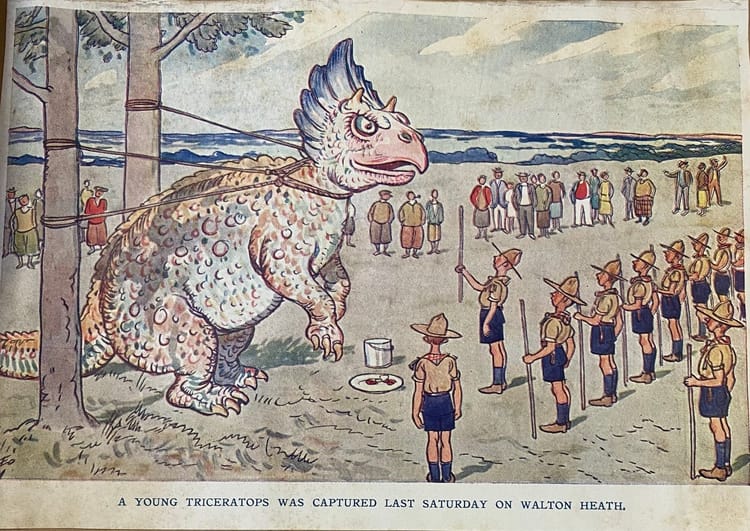
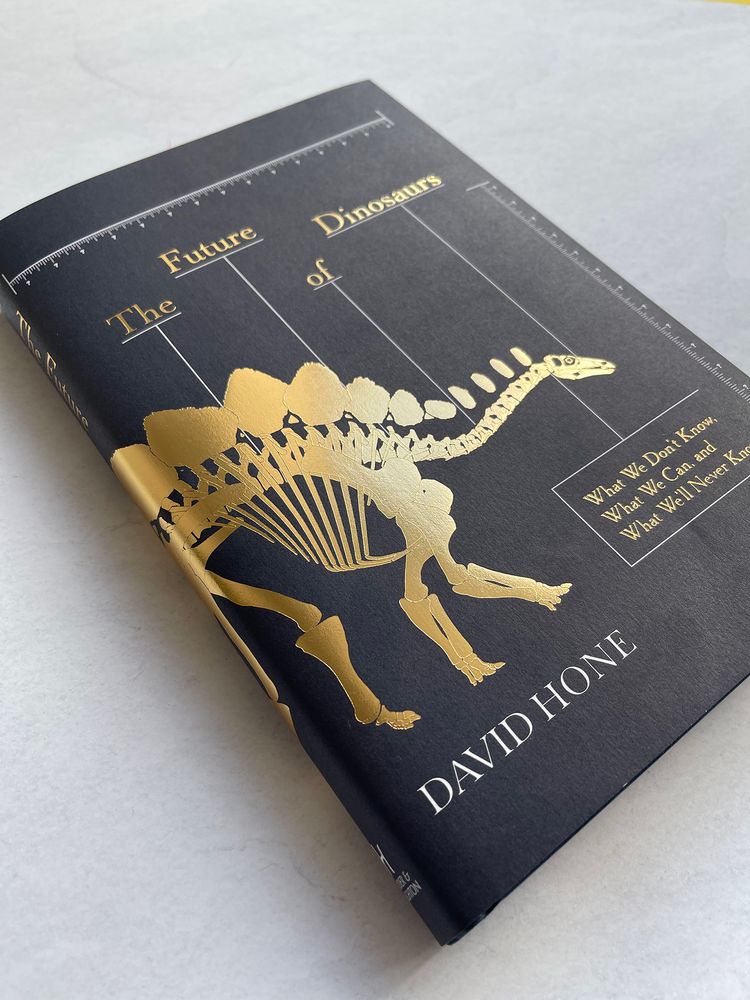
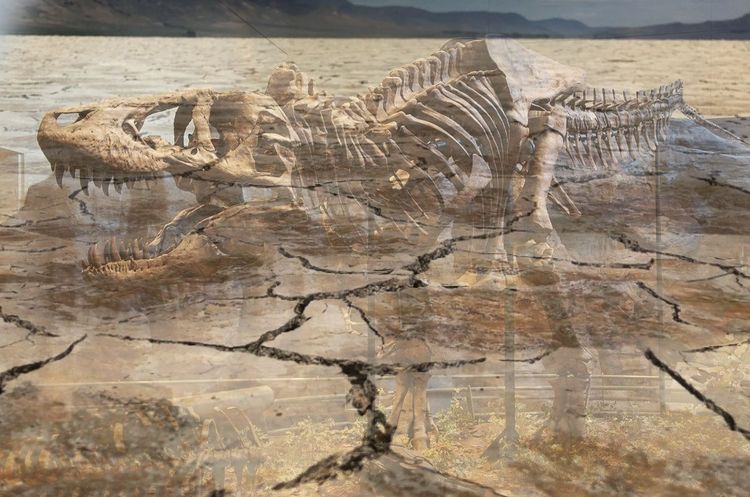
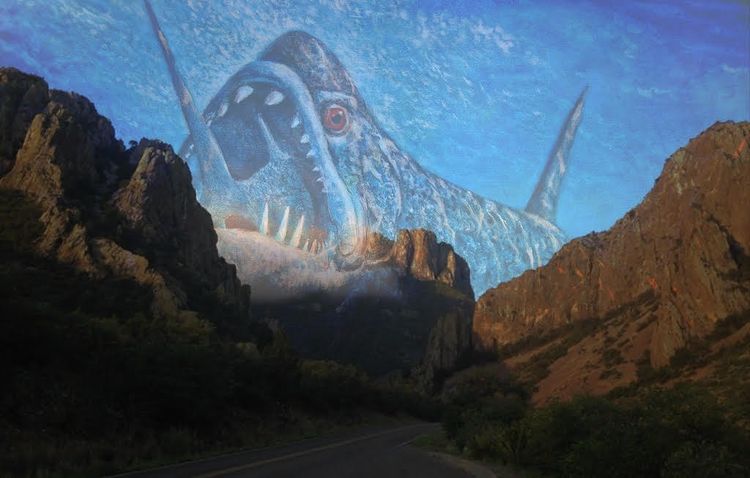

Member discussion